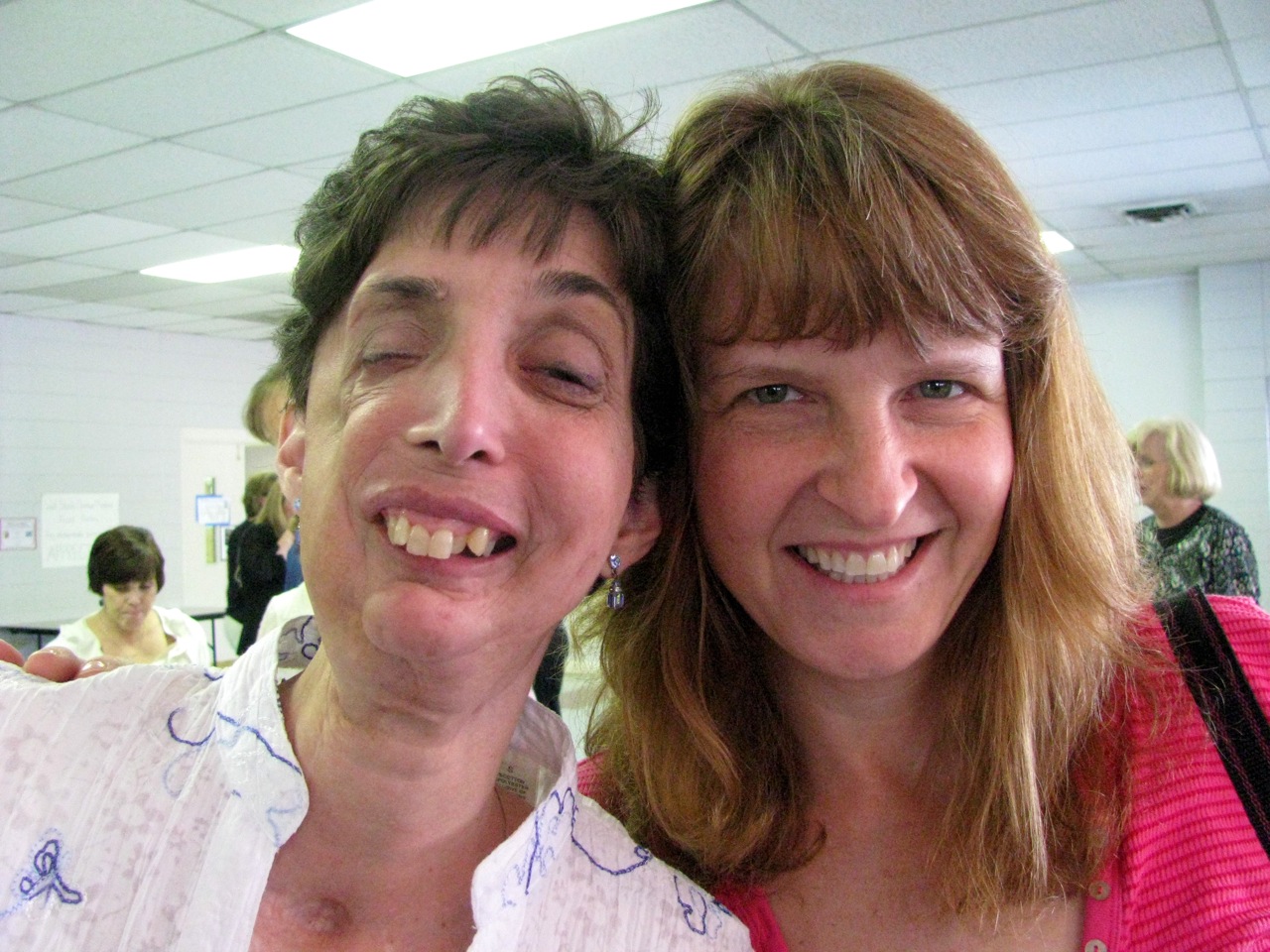Written by Ruth Moran, edited by Christina Parker Brown

Ruth Moran, a dear friend of mine who sadly passed away from a rare form of cancer in 2012, originally gave this speech to our homeschool Adventure Group. I have transitioned it into a readable article. She put together a tremendous practical message on how to minister to people in crisis that I found extremely helpful. Her own story reveals such a faithful heart during suffering that she endured for more than a decade. (See Ruth’s testimony at the end of the article.)
Below is an edited readable article made from Ruth’s notes. Be sure to click on the attached FREE PDF below that includes a list of practical and helpful ideas that anyone can use.

Whether it is a death, a dire prognosis, financial disaster, and/or bad news of any kind that turns life upside down, often helplessness is the only identifiable driving force. As participants in the sufferings of our Lord Jesus Christ and joint heirs with Him, we are exhorted to bear one another’s burdens. This command calls for healing, life-giving behavior from the body of Christ.
But I know the plaintive cry, “I don’t know what to say!” “I don’t know what to do!” I know that helpless feeling. I’m by no means an expert on ministering to the suffering. Let’s begin by scratching the surface of some of the things that prevent us from ministering effectively to one another.
“I don’t know what to say”—No one does. So we usually end up saying too much or nothing at all. And yes, sometimes we say the wrong thing. But remember—someone in crisis usually experiences raw emotions. The only tangible, dependable thing in their lives is usually the roller coaster of wildly fluctuating fear, grief, pain, chaos, and the unpredictable.

What not to say:
“I completely understand.”
No you don’t. No one can, except Jesus who was tested in every way. No matter how similar your own suffering is or was, comparing it or describing it without being asked is inappropriate and discouraging.
Your earthly circumstances rehashed, seldom point to the gospel. No matter how empathetic you want to be, at this point of magnitude in the sufferer’s mind, claiming understanding can come across as demeaning of them or minimizing their pain. I can’t emphasize enough that though we want to share what we think we have in common, it’s a mistaken notion to assume that it will help to talk about our own experiences to someone in anguish about their own pain.
Sometimes the best rule is: Listen, don’t talk!
“Aunt Mergatroid or Uncle Bertram had something like that (or some other obscure ailment.) They had such and such a treatment or outcome.” Or, “I just read something in the news…” In the face of crisis someone else’s experience seems irrelevant. No matter how much you want to try to relate, resist the temptation to share horror stories or even success about someone else’s experience.
On a side note here, if it’s lung cancer or some such, please don’t let the first question be, “Oh, was she a smoker?” The strong temptation is to explain and find a reason. This can come across as judgmental. Leave the cause-finding to the professionals and not in the realm of the discussion from curiosity. If she did? Well then she brought it on herself. If she didn’t? You’ve still tried to place blame. What’s in the past cannot change the present circumstance and bringing it up now is a fruitless exercise. Perhaps there will be a time to delve into the causes, but more often than not, this is not anyone’s business to speculate but the patient and her medical professionals.
“Try this holistic/naturalistic/cure-all treatment. It’s been treating and curing cancer for decades.”
I don’t want to be insensitive about this but there was a lot of irony to me about recommendations for holistic treatments or new diets, when I’m unable to eat a junk food diet, let alone health food.
If you do have suggestions, make them carefully, remembering that for every suggestion you may have, there are probably another half-dozen or so that are also being shared. Offer the fact that you know of something that might be helpful and to let you know if they’d like you to give more information about it. If you are a health professional and sincerely do have helpful information or access to specialists, offer that by all means, but do not be insistent. It would be wise to have communication like this NOT go directly to the patient. The time following a diagnosis can be so complicated with shock and even fear and flurries of testing and appointments that adding to that compounds the complex emotions and stress.
“If you have enough faith you’ll be healed,” “I know God will give you a miracle,” “I had a dream/vision/feeling that _____________ will happen.”
My stock answer to this is that the only healing that I truly needed was the healing of my sin-sick soul, and I already had that. My only prayer for healing was always combined with, “His will be done.” For myself, my prayer need was that I would “withstand the temptations of weak faith and complaining, to rest in His peace. And that I would tolerate the pain with grace and humor. And that He would accomplish His work through and in spite of me.“
Is it wrong to pray to be healed? God knows our hearts and when we pray, we ought to say, “if it be Your will.” No, it is not wrong unless our heart’s desire is “Heal me, no matter what Your will is. I want what I want!”
“Call me if you need anything.”
There can be a great sense of confusion and bafflement about knowing myself what I needed. It was difficult to focus on anything but that elephant in the room.
Secondly, it was difficult to ask for help even if I knew what I needed. We need to learn how to give and receive graciously so that our walk with the family of God reflects and reinforces God’s grace, given and received—the hope of the Gospel.
The open-ended nature of this offer is so wide and intangible, that it can be taken as insincere—even if you follow it with “I really mean it!”

So what do I say?
“I’m sorry you’re hurting, suffering, grieving.”
“I can’t imagine what you must be going through.”
“If you want to talk, I’m willing to listen.” (And keep my mouth shut!)
“I’m praying for you.” But don’t just say that—do it tangibly. Do it now. Pray aloud over them physically or in real time on the phone. Some of the most meaningful expressions of love and concern are expressed in prayer. Write out your prayer on a card (or an email) and pray specifically, focusing on the physical, as well as the spiritual.
What to pray?
“Thy will be done” is the only prayer of faith. Prayer for healing without submission to His will is disobedience to Christ’s instruction on how to pray.
What do I do?
See FREE handout for list below. This is not exhaustive but a beginning for jogging our creative juices!
Some additional ideas:
*Try Human touch such as brushing hair, facials, manicures/pedicures, and massage.
*Each person’s illness or crisis should be handled with respect.
*Information should be distributed in the method of the patient’s choosing and only to whom the patient wishes.
*No one needs a “Drama Queen or King” around at the time of a crisis. These are people who seem to appear to want to help but usually manage to garner attention for themselves. This is not life-giving, but life-stealing like a parasite.
*Do not assume that after the first month they don’t need you. I had a friend who purposely waited until all the hospital flowers died and the “get well” cards slowed to send an enormous arrangement. Others who’ve been through crises of other kinds have told me that there is nothing so lonely as when people have forgotten about you, but the pain is still there.
*Do not use God’s word to chastise the patient to modify behavior to suit any agenda. This seems obvious but it’s truly appalling how often the Bible is quoted tritely to manipulate or modify behavior.
What have you heard that turns you on your ear? such as:
“Oh ye of little faith…”
“Man is born to trouble as the sparks fly upward…”
“Thy faith hath made thee whole…”
“What sin does God want you to repent of?”
Give the person permission to weep or rage if you can handle it. If not, make your time brief and your words short and sweet.
Ask if they want to talk about it. For some, they do but may think you are uncomfortable with it. If you are willing to listen and not squeamish, let them know from the beginning that they can talk about it, show their scars, etc.
There is no one, right way to handle a crisis and understanding must be given for however the person chooses to deal with it. Each person must be allowed to grieve and suffer in whatever way he chooses. There is a spiritual aspect to this—but beyond specific biblical directives, no one can or should tell another how to suffer/grieve. This applies to:
*Privacy in visitors, phone calls, condition updates and information.
*Choices of treatment, hospitals, medical personnel.
*Timing of visits, calls, etc.
Don’t forget that the one who is suffering is not the only one suffering—and sometimes they have a more difficult time. Spouses, family members and close friends also need support, babysitting, a soft shoulder, to be upheld, hugged.
If you have any ideas to add, please mention in the comments! I am eager to collect more ideas. It is my hope that other families will benefit from these ideas and that Ruth’s legacy will live on through the blessings of others.
Click here for a list of tangible and practical ways to minister to people in crisis.



If you are interested in reading a few other truths I learned from Ruth,
read:
Listen to Ruth’s testimony here
The Most Beautiful Woman I Know
Saying Goodbye to Ruth: 6 Truths She Taught Me Through Cancer



What a great and inspiring message. I will be using this to help other ministering sisters in my ward and stake to do a better job of ministering. Vid bless you!!
Thank you for taking the time to reply. Ruth taught me so much. May God bless you too!